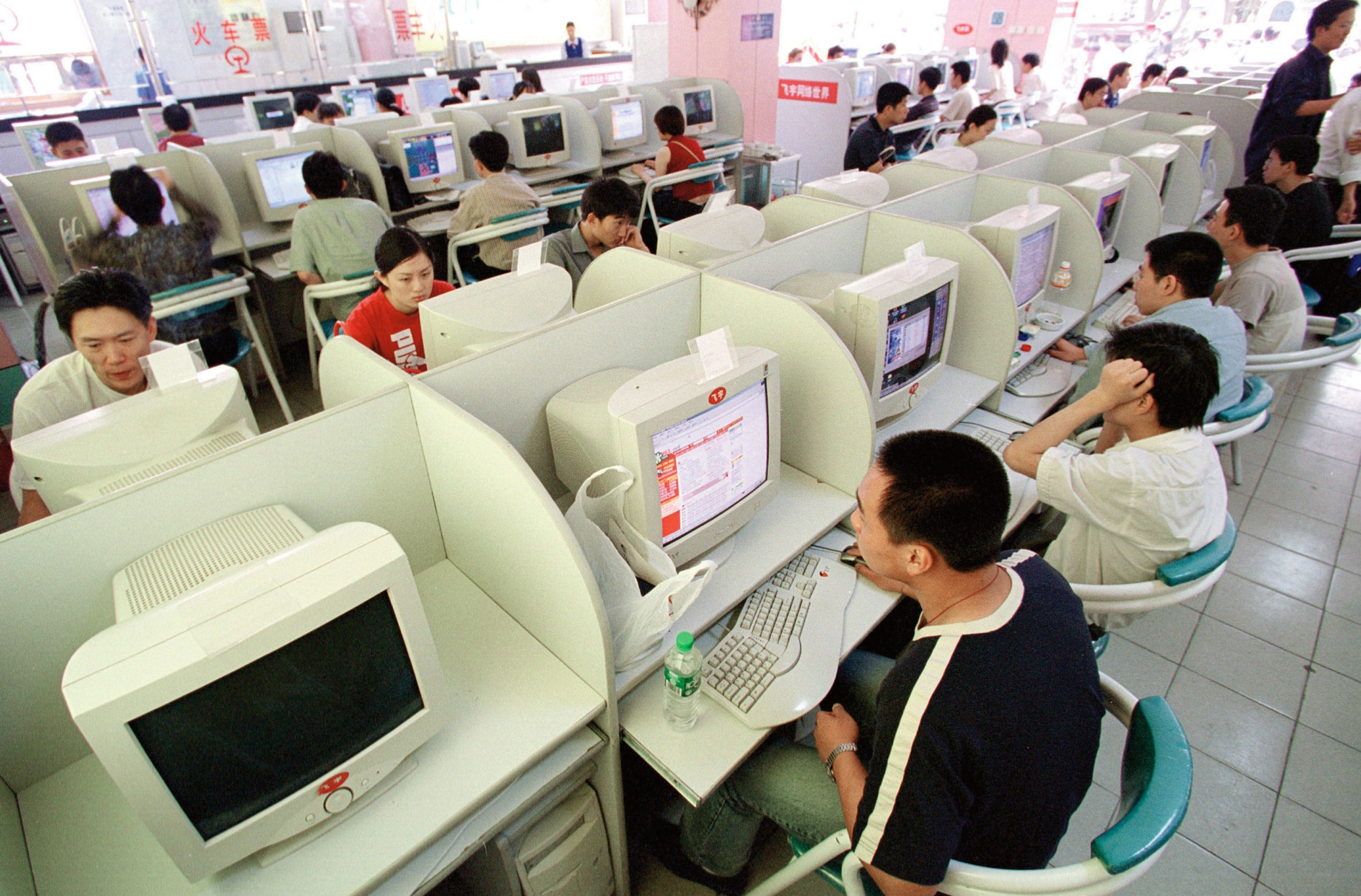There isn’t as much freedom as you may think
According to one prediction, the new technology will bring every individual “into immediate and effortless communication with every other” and will “practically obliterate political geography and make free trade universal.”
Sounds like a 1990s prediction about the Internet. But the quotation, which can be found in the preface to a new book by Professor Jack L. Goldsmith and Columbia Law Professor Tim Wu ’98 (“Who Controls the Internet? Illusions of a Borderless World,” Oxford University Press), is from the 1890s, and it refers to the telegraph.
As Goldsmith and Wu make clear, the Internet is just the latest in a series of communications revolutions that initially inspired idealistic visions of people empowered and nation-states withering. “Every time there’s a new technological revolution that makes communication faster and cheaper, the same reaction occurs,” Goldsmith explained recently in an interview. “Namely, that this will make it harder for states to regulate. But every time, that doesn’t happen. And I don’t think it’s happened here.”
The authors say the state has been the winner in various Internet battles. They show, for example, how eBay, far from being the self-governing community that founder Pierre Omidyar envisioned, has relied on legal power to police its “community” and enforce norms. They dissect the file-sharing movement, which, though not dead yet, has nonetheless been much diminished in the U.S. by recent Supreme Court decisions favoring copyright enforcement, and by industry developments such as iTunes. They also reveal how offshore “data havens”—where many pornographers and gamblers hope to evade government control—are foundering because nations are able to enforce their laws against the necessary intermediaries—service providers, search engines and banks—located within their borders.
“The claim is not that the Internet changes nothing—of course it’s made huge changes,” Goldsmith said. “But what it doesn’t change is the fundamental power of the state to regulate things within its borders. Territorial power and territorial coercion, the need for public goods, the need for states to enforce contracts and prevent fraud and provide markets and securities and things like that—all are necessary for the Internet to flourish.”
Drawing on research from the OpenNet Initiative at Harvard Law School’s Berkman Center for Internet & Society, Goldsmith and Wu also tell the disturbing story of how governments like China’s have tamed the Internet through sophisticated filtering and surveillance, showing that what was envisioned as a vehicle for unlimited access to information and a tool for the spread of democracy can also be used as a means of control and repression.
“People thought that the Internet had the First Amendment written into its code,” Goldsmith said. “But it doesn’t, as China is showing. I’m sure the Chinese people in some respects have a lot more freedom than they used to, but in other respects the government has much more control than ever over the Chinese people because of the Internet.”
